Type 2 diabetes is one of the most common long-term health conditions in the UK, affecting millions of people. It occurs when the body becomes resistant to insulin or when the pancreas does not produce enough insulin to regulate blood sugar levels. Over time, unmanaged diabetes can lead to serious health complications, including heart disease, kidney damage, nerve problems, and vision loss. However, the good news is that with the right lifestyle changes, medical support, and education, many people can manage their condition effectively—and some can even achieve remission.
In this article, we will explore practical ways to improve your health with type 2 diabetes, discuss the possibility of diabetes remission, highlight the best and worst foods for diabetics, and point you towards the help and support available in the UK.
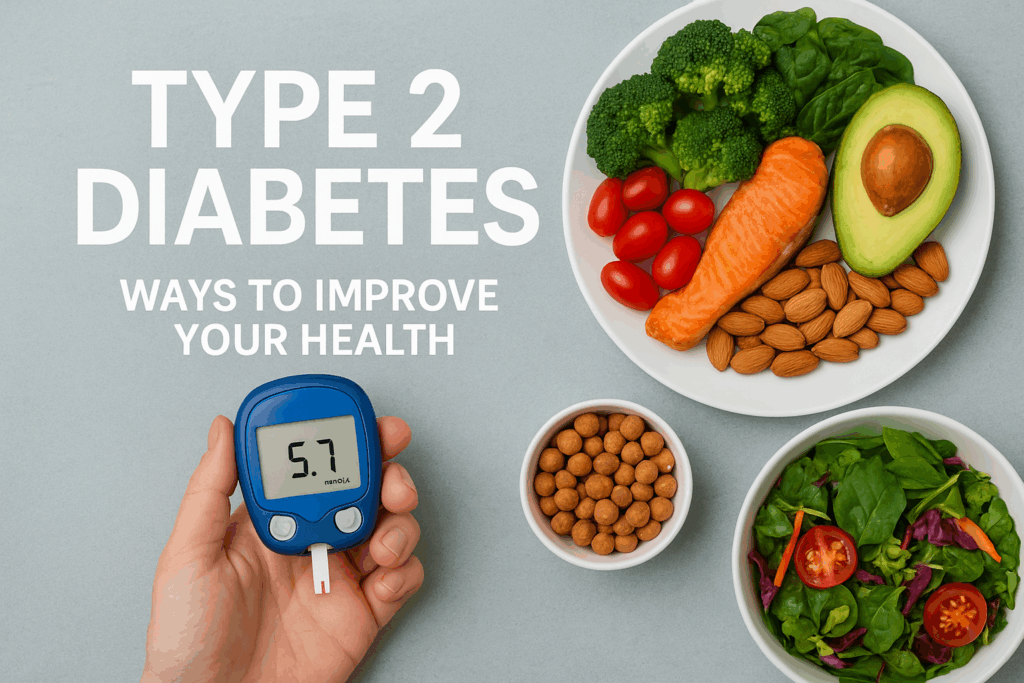
What is Type 2 Diabetes?
Type 2 diabetes develops gradually and is strongly linked to lifestyle factors such as diet, physical activity, and body weight, although genetics also play a role. It differs from type 1 diabetes, which is an autoimmune condition where the body attacks insulin-producing cells.
With type 2 diabetes:
- The body’s cells do not respond effectively to insulin (insulin resistance).
- The pancreas may not produce enough insulin.
- Blood sugar levels rise, leading to health risks over time.
Can Type 2 Diabetes Go Into Remission?
Diabetes remission is possible, meaning blood sugar levels return to a non-diabetic range without the need for medication. This does not mean the condition is cured, but rather that it is well controlled.
Factors that can contribute to remission include:
- Weight loss: Research, including the DiRECT trial in the UK, has shown that losing significant weight (around 10–15 kg) can help many people achieve remission.
- Healthy eating: A diet focused on whole, unprocessed foods, lower carbohydrate intake, and portion control supports blood sugar balance.
- Physical activity: Regular exercise improves insulin sensitivity.
It is important to note that remission is not guaranteed, but many people can significantly improve their health outcomes with these lifestyle changes.
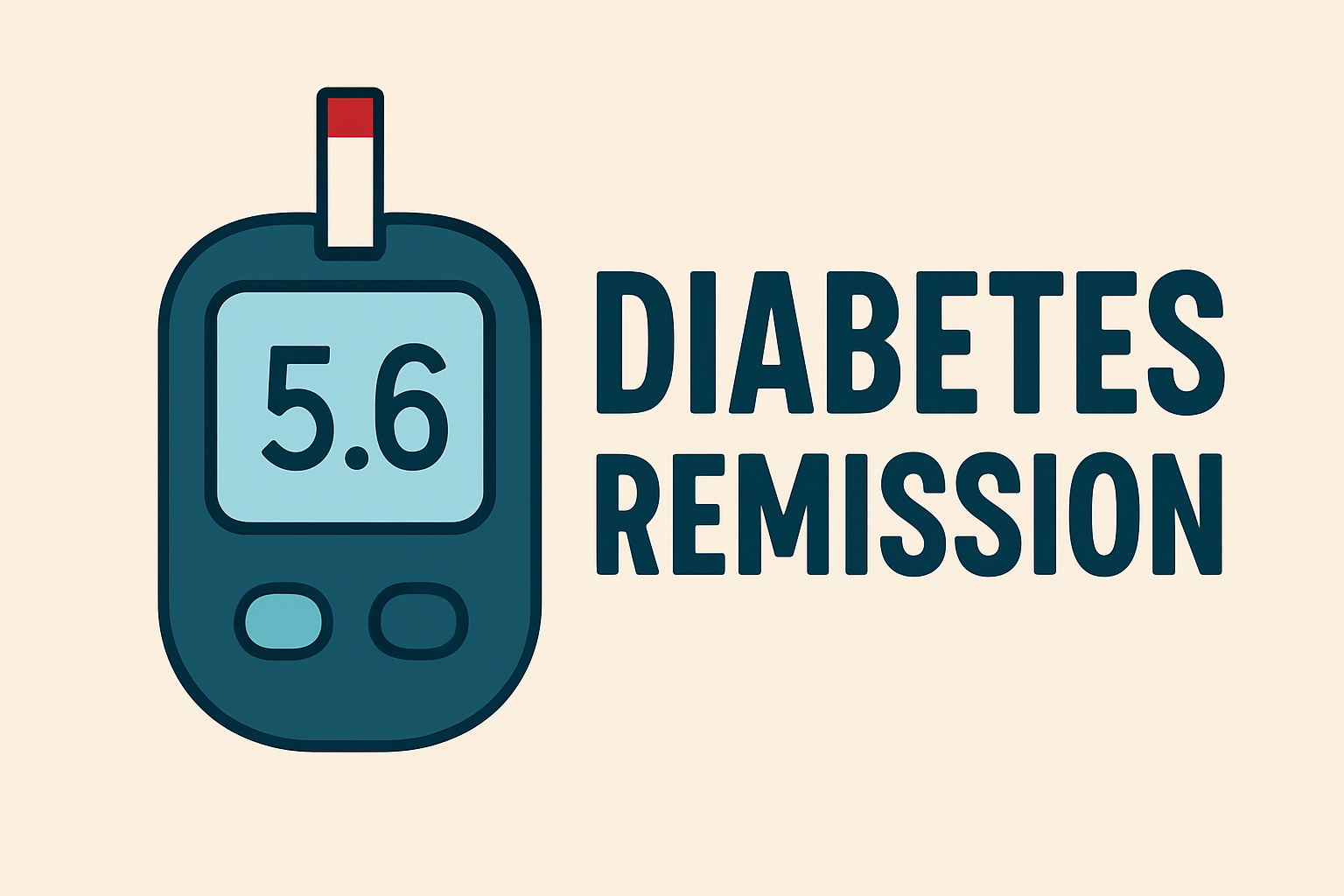
Foods That Are Good for People with Type 2 Diabetes
Diet plays a central role in managing diabetes. Choosing the right foods can help stabilise blood sugar levels, support weight management, and reduce the risk of complications.
Best Foods for Type 2 Diabetes
- Non-starchy vegetables: Broccoli, spinach, kale, peppers, and courgettes are low in carbs and packed with nutrients.
- Lean proteins: Chicken, turkey, eggs, tofu, and fish (such as salmon, sardines, and mackerel) help stabilise blood sugar levels.
- Whole grains: Brown rice, quinoa, oats, and whole wheat pasta provide slow-releasing carbohydrates.
- Legumes: Beans, lentils, and chickpeas are high in fibre and protein, helping regulate blood sugar.
- Nuts and seeds: Almonds, walnuts, chia seeds, and flaxseeds provide healthy fats and keep you full for longer.
- Low-fat dairy: Greek yoghurt, skimmed milk, and cottage cheese can be part of a balanced diet.
- Healthy fats: Olive oil, avocado, and oily fish help improve heart health.
- Fruits (in moderation): Berries, apples, and pears have a lower glycaemic index compared to tropical fruits.
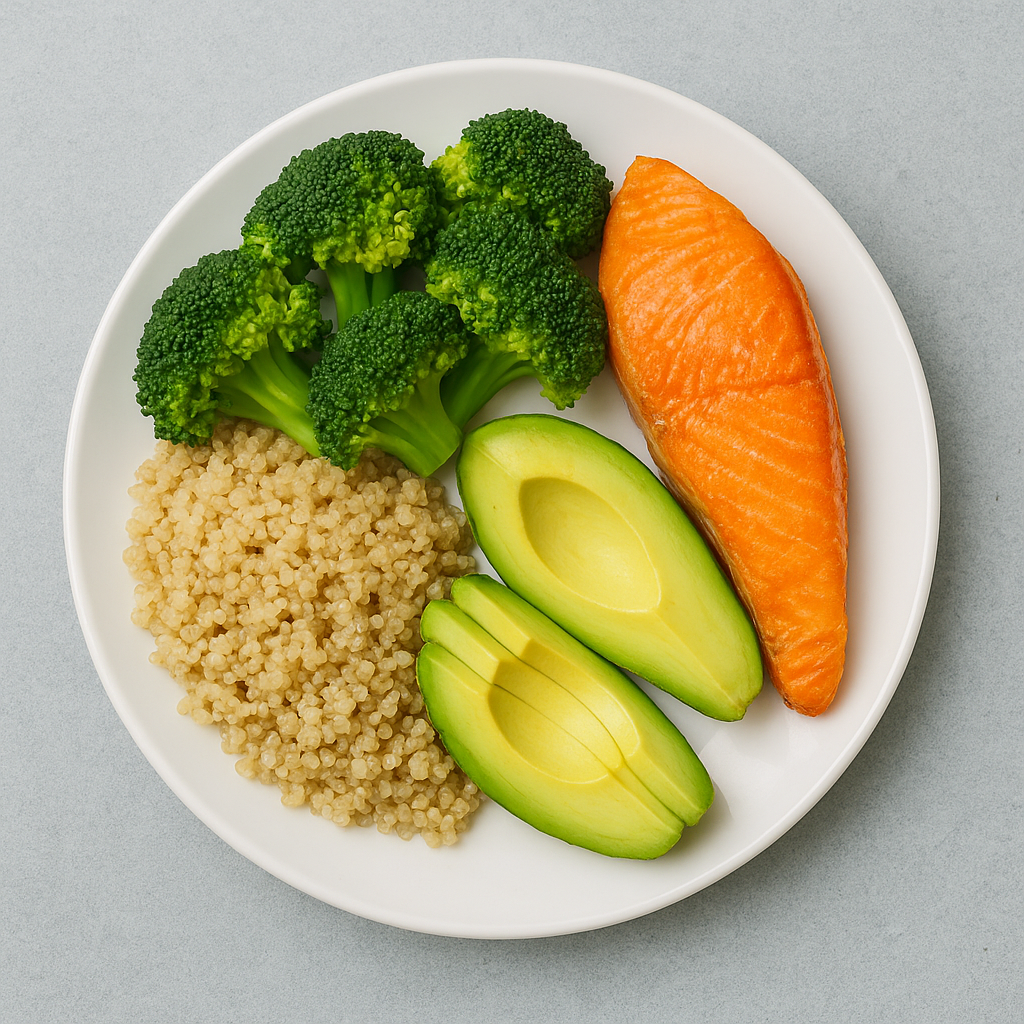
Foods to Avoid or Limit with Type 2 Diabetes
Some foods can cause rapid spikes in blood sugar or contribute to weight gain and complications. These should be avoided or eaten in small amounts.
- Sugary foods and drinks: Cakes, biscuits, sweets, fizzy drinks, and fruit juices.
- Refined carbs: White bread, white rice, pastries, and processed cereals.
- Fried and processed foods: Chips, fried chicken, sausages, and other high-fat, processed items.
- Full-fat dairy and fatty meats: Bacon, processed deli meats, and full-fat cheeses.
- High-salt foods: Ready meals, crisps, and takeaway meals, which increase blood pressure risk.
- Alcohol: Excessive drinking can affect blood sugar and damage the liver.
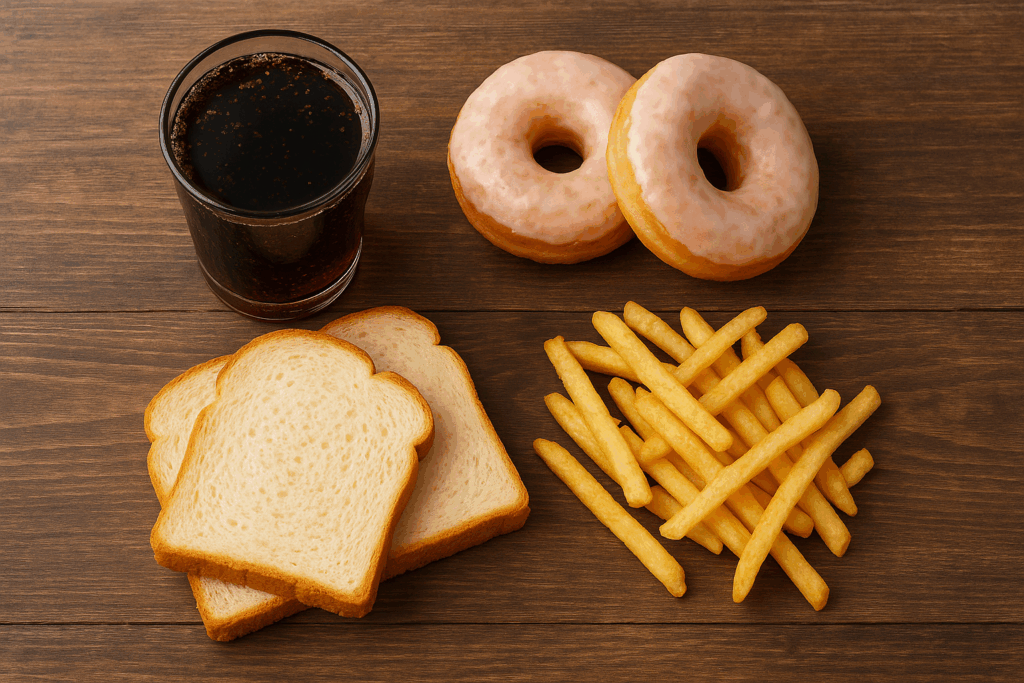
Lifestyle Changes to Improve Health with Type 2 Diabetes
Beyond diet, lifestyle changes are essential to managing type 2 diabetes effectively.
1. Regular Exercise
Physical activity helps lower blood sugar, improve insulin sensitivity, and maintain a healthy weight. Aim for:
- 150 minutes per week of moderate-intensity exercise (brisk walking, cycling, swimming).
- Strength training (using weights or bodyweight exercises) at least twice a week.
2. Maintain a Healthy Weight
Even modest weight loss (5–10% of body weight) can significantly improve blood sugar control.
3. Monitor Blood Sugar Levels
Self-monitoring or using continuous glucose monitors (CGMs) helps you understand how your diet and activities affect your blood sugar.
4. Get Enough Sleep
Poor sleep affects insulin resistance. Aim for 7–9 hours of quality sleep per night.
5. Stress Management
High stress can increase blood sugar. Practices such as meditation, yoga, or deep breathing may help.

Support and Resources Available in the UK
Living with type 2 diabetes can feel overwhelming, but there is extensive support available across the UK.
NHS Services
- GP and diabetes clinics: Regular check-ups, blood tests, and personalised treatment plans. Check with your GP.
- NHS Diabetes Prevention Programme: Free courses for people at risk of type 2 diabetes, focusing on weight management and healthy living.
- Dietitian referrals: For personalised nutrition advice.
Charities and Organisations
- Diabetes UK: Provides information, helplines, and support groups.
- Local diabetes groups: Peer support for sharing experiences and advice.
Digital Tools
- NHS apps: Blood sugar tracking, healthy recipes, and exercise guides.
- Online communities: Forums and support networks for advice and encouragement.
Medication Support
Some people may need medication such as metformin, or insulin in certain cases. These treatments, alongside lifestyle changes, help keep blood sugar under control.
Key Takeaways
- Type 2 diabetes is manageable and, in some cases, remission is possible.
- A healthy diet focused on whole foods, lean proteins, and high-fibre carbs supports blood sugar control.
- Avoiding processed, sugary, and fatty foods reduces complications.
- Exercise, weight management, sleep, and stress reduction are powerful lifestyle tools.
- The NHS and diabetes charities provide extensive resources and support in the UK.
Final Thoughts
Living with type 2 diabetes does not mean giving up on a healthy, fulfilling life. By making sustainable lifestyle changes, eating the right foods, staying active, and accessing support, you can take control of your health. Many people even achieve remission, showing that type 2 diabetes does not have to define your future.
If you or someone you love is living with type 2 diabetes, start small, make gradual changes, and reach out for the support available. Your health and wellbeing are worth it.


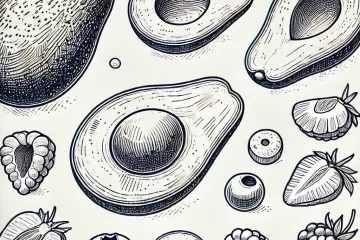
0 Comments